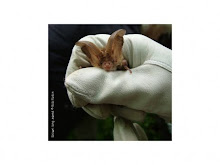
A "Heatwave" in this part of the world have made for perfect growing conditions on WTA in the past few weeks. The heat has jolted the cucumbers (Marketmore)and pumpkins (Crown prince) into life, while the onions and cauliflowers have been reveling in the warm soil and air. The first carrots (Parmex) have been pulled and swiftly eaten with some fresh rocket and spinach.
WTA lost another 8 square meters of turf on the weekend . The newly available bed was quickly filled with golden beetroot seedling and a dozen climbing French beans. It's a relief to see less and less lawn to mow and more and more vege in its place!
WTA lost another 8 square meters of turf on the weekend . The newly available bed was quickly filled with golden beetroot seedling and a dozen climbing French beans. It's a relief to see less and less lawn to mow and more and more vege in its place!
I've chosen "White lady" Runner beans (Marshall's seeds) to plant in the far bed where grown celeriac and Romenescu broccoli have been grown for the last few years. WTA has never had any runner beans on it in my time and I'm hoping that they will help fix some more nitrogen in the bed. The runner been poles went up and the runner bean seedlings went in Sunday.
The arrival of the first Autumn seed catalogues through the letter box this week was a stark reminder that in the allotment game you've always got to be thinking 5 to 6 months ahead. Marshalls Seeds autumn catalogue has some interesting stuff and the folks from Dobies have also sent a neat "autumn" catalogue. Watch out for for a seasonal "catalogue review/ roundup on this blog in the next few months.
I've gone with JBA Seed Potato Merchants for my "Christmas" seed potatoes this year.
A 2.5kg pack of Ulster Classic seeds set me back £7.95 while a 2.5kg pack of King Edwards set me back another £7.95. The plan is to plant out the seed potatoes in overturned sods of turf from the newly dug bed and let them do the work in breaking down and cleaning up the soil. Some disappointing first and second early harvests have still got me guessing as to what went wrong but also hoping that my later potato crops will have some hefty returns - especially come December.
The arrival of the first Autumn seed catalogues through the letter box this week was a stark reminder that in the allotment game you've always got to be thinking 5 to 6 months ahead. Marshalls Seeds autumn catalogue has some interesting stuff and the folks from Dobies have also sent a neat "autumn" catalogue. Watch out for for a seasonal "catalogue review/ roundup on this blog in the next few months.
I've gone with JBA Seed Potato Merchants for my "Christmas" seed potatoes this year.
A 2.5kg pack of Ulster Classic seeds set me back £7.95 while a 2.5kg pack of King Edwards set me back another £7.95. The plan is to plant out the seed potatoes in overturned sods of turf from the newly dug bed and let them do the work in breaking down and cleaning up the soil. Some disappointing first and second early harvests have still got me guessing as to what went wrong but also hoping that my later potato crops will have some hefty returns - especially come December.






